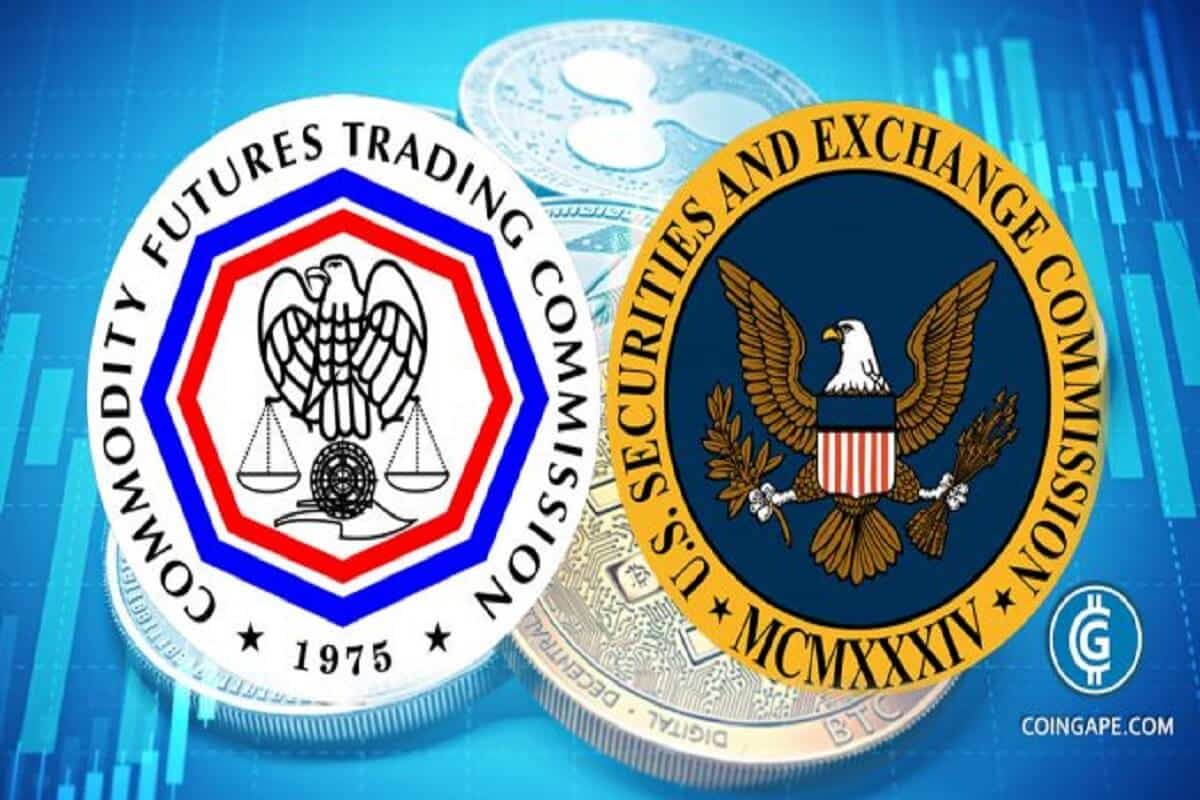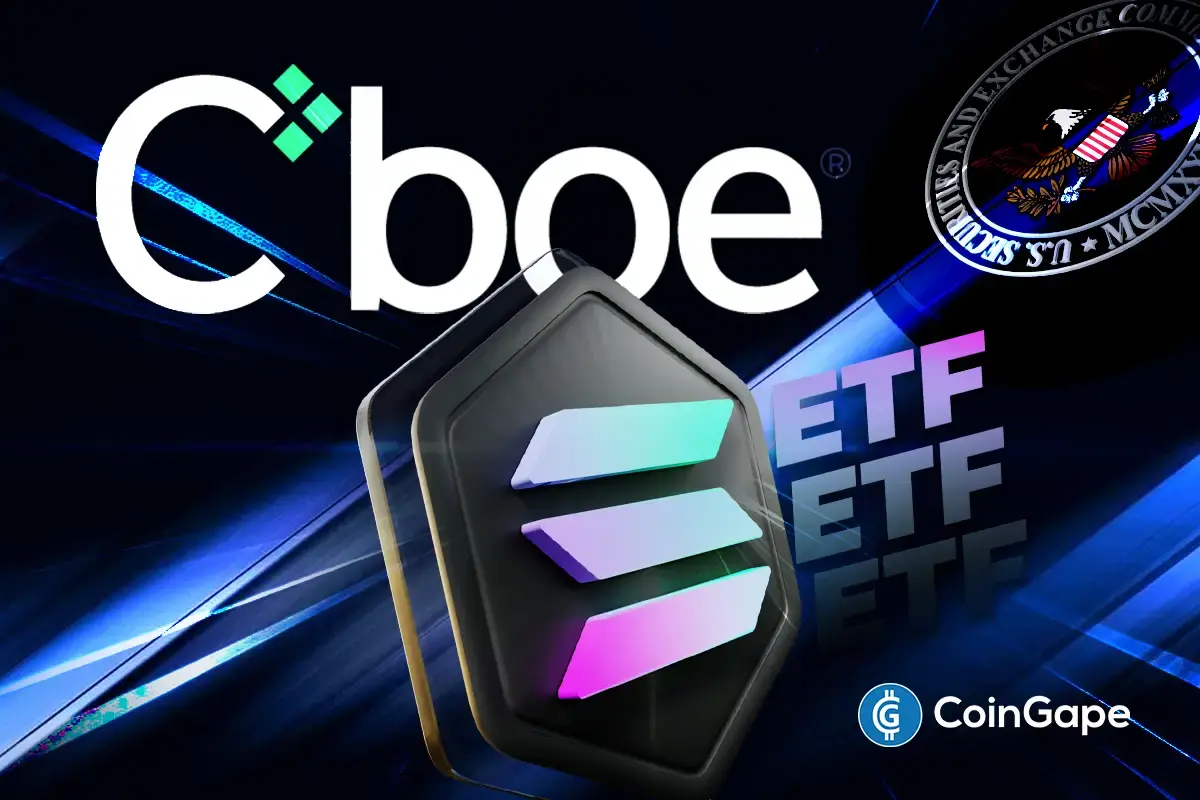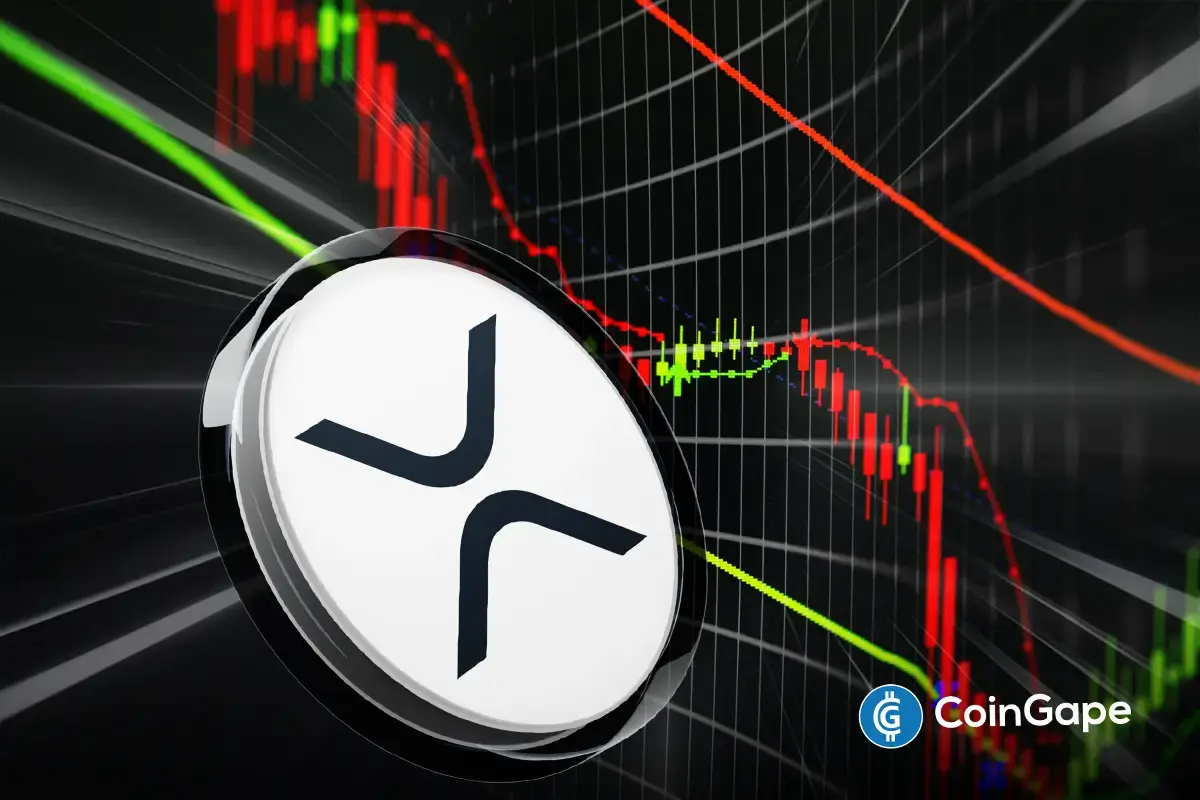Regulation
Congressman Reveals New Crypto Bill For SEC & CFTC Joint Regulation

Tennessee Congressman John Rose, a member of the Financial Services Committee, is introducing a new crypto bill aimed at reshaping the regulation of digital assets in the United States.
The proposed bill is titled the “Bridging Regulation and Innovation for Digital Global and Electronic Digital Assets Act” or the “BRIDGE Digital Assets Act” bill. It seeks to establish a Joint Advisory Committee on Digital Assets with representatives from both the Securities and Exchange Commission (SEC) and the Commodity Futures Trading Commission (CFTC).
Contents of New Crypto Bill
The Joint Advisory Committee will be responsible for offering advice on the rules, regulations, and policies concerning digital assets. According to the bill’s text, its goal is to promote regulatory harmonization between the SEC and CFTC. These two agencies currently oversee different aspects of crypto regulation.
Hence, the proposed committee in the crypto bill will be tasked with finding ways to quantify aspects of digital assets. These include decentralization, functionality, and security. Moreover, Congressman Rose stated that the existing “regulation-by-enforcement” strategy is not working and is instead driving innovation and investment abroad. Moreover, earlier today eToro trading platform settled with the Securities and Exchange Commission to pay $1.5 million which many attribute to stifling innovation.
SCOOP: Republican Tennessee Congressman @RepJohnRose, who sits on the @FinancialCmte, is introducing a new bill called the “BRIDGE Digital Assets Act” that would establish a Joint Advisory Committee on digital assets between the @SECGov and the @CFTC.
The purpose of the…
— Eleanor Terrett (@EleanorTerrett) September 12, 2024
“The Joint Advisory Committee on Digital Assets will provide a framework for the government and private sector partners to cooperate on a path toward success for the regulatory landscape of digital assets and private sector participants,” said Rose. Furthermore, he emphasized the need for collaboration between the government and private entities for better regulation.
Additionally, the crypto bill mandates that the committee consist of at least 20 members from the private sector. The members will include digital asset issuers, academic researchers, and users of digital assets. These stakeholders would serve as advisors to both the SEC and CFTC on how best crypto regulation would be applied while also encouraging innovation.
Addressing Current Regulatory Gaps
The BRIDGE Digital Assets Act is positioned as a response to growing frustration in the crypto industry over the lack of clarity and consistency in digital asset regulation. The SEC and CFTC have often clashed over jurisdiction, with the former treating certain cryptocurrencies as securities and the CFTC viewing them as commodities.
Thus, the Joint Advisory Committee is intended to bridge this regulatory divide. This will ensure that the agencies are aligned on key policies. In addition, the committee would also explore the potential for blockchain technology and distributed ledger systems to enhance the financial market infrastructure.
It would focus on improving customer protections, increasing transparency, and reducing transaction costs. It will also expand access to financial services through digital assets. The crypto bill requires the SEC and CFTC to jointly adopt a charter for the committee within 90 days of the bill’s enactment.
Members would be appointed within 120 days, and the committee would hold its first meeting within 180 days. Meetings would occur at least twice a year, with additional sessions as needed at the request of either commission.
If the bill is passed, the BRIDGE Digital Assets Act could mark a significant step toward crypto regulation. However, currently, the SEC is facing scrutiny as Chairman Gary Gensler faces illegal hiring allegations. This uncertainty could negatively impact the potential collaboration between the SEC and CFTC.
Disclaimer: The presented content may include the personal opinion of the author and is subject to market condition. Do your market research before investing in cryptocurrencies. The author or the publication does not hold any responsibility for your personal financial loss.
Regulation
US SEC Acknowledges Fidelity’s Filing for Solana ETF

The U.S. Securities and Exchange Commission (SEC) has formally acknowledged the filing for Fidelity’s spot Solana (SOL) Exchange-Traded Fund (ETF).
This marks a key development in the financial industry, as Fidelity seeks to list its Solana ETF on the Cboe BZX Exchange. The acknowledgment comes after Fidelity submitted a proposed rule change, paving the way for the potential approval of the product.
Fidelity’s Spot Solana ETF Proposal
The SEC’s acknowledgment follows Fidelity’s filing to list and trade shares of the Fidelity Solana Fund under the Cboe BZX Exchange. The proposed rule change, initially submitted on March 25, was later amended on April 1, 2025, to clarify certain points and add additional details.
The amended proposal aims to list the Solana ETF under BZX Rule, which pertains to commodity-based trust shares. According to the Cboe BZX Exchange, Fidelity plans to register the shares with the SEC through a registration statement on Form S-1.
Fidelity’s experience with crypto ETFs, having launched the Fidelity Wise Origin Bitcoin Fund (FBTC) and the Fidelity Ethereum Fund (FETH), has prepared it for this new initiative. FBTC has drawn substantial interest, accumulating nearly $17 billion in assets, while FETH currently manages around $975 million.
This Is A Developing News, Please Check Back For More
Disclaimer: The presented content may include the personal opinion of the author and is subject to market condition. Do your market research before investing in cryptocurrencies. The author or the publication does not hold any responsibility for your personal financial loss.
Regulation
US Senate Banking Committee Approves Paul Atkins Nomination For SEC Chair Role

The U.S. Senate Banking Committee has voted to approve Paul Atkins’ nomination for the role of Chair of the Securities and Exchange Commission (SEC). The vote, which took place on Thursday, passed with a narrow margin of 13-11, along party lines.
Paul Atkins, nominated by President Donald Trump, now moves one step closer to taking over the top regulatory position at the US SEC.
Senate Banking Committee Approves Paul Atkins Nomination
Paul Atkins’ nomination for SEC Chair has received approval despite sharp opposition from Democratic members of the Senate Banking Committee. The vote was entirely split, with Republicans supporting Atkins and all Democrats opposing the decision.
This partisan divide highlights the contentious nature of Atkins’ confirmation, which had been under scrutiny for several reasons.
The committee’s approval now clears the path for Atkins to proceed to the full Senate for a final confirmation vote. Given the Republican-controlled Senate, it is widely expected that Atkins will secure the necessary votes to take over the SEC leadership. With Republicans holding a 53-47 majority in the Senate, the confirmation process is anticipated to move forward swiftly.
This Is A Developing News, Please Check Back For More
Disclaimer: The presented content may include the personal opinion of the author and is subject to market condition. Do your market research before investing in cryptocurrencies. The author or the publication does not hold any responsibility for your personal financial loss.
Regulation
Kraken Obtains Restricted Dealer Registration in Canada

Cryptocurrency exchange Kraken has obtained a Restricted Dealer registration in Canada. The registration comes after completing a pre-registration undertaking (PRU) process with Canadian authorities.
The exchange has also announced the appointment of Cynthia Del Pozo as its new General Manager for North America. Del Pozo will oversee Kraken’s growth initiatives in Canada.
Kraken Completes PRU Process In Canada
Kraken’s Restricted Dealer registration marks the completion of a thorough pre-registration undertaking (PRU) process with Canadian regulators. The registration places Kraken under the supervision of the Ontario Securities Commission (OSC). This oversight ensures users have access to secure crypto products within a properly regulated local ecosystem.
According to the Canadian Securities Administrators (CSA), the Restricted Dealer registration is one of eight firm registration types in Canada. This particular classification is used for firms that “do not quite fit under any other category.” It also comes with specific requirements and conditions set by securities regulators.
Kraken’s regulatory achievement comes during a period of change in the Canadian crypto sector. Just months earlier, competitor Gemini exchange announced its departure from the Canadian exchange market by the end of 2024. This was a move that surprised many and raised questions about cryptocurrency regulation clarity in the country.
Kraken Introduces New Canadian GM
Del Pozo has joined Kraken to lead its Canadian operations as the new General Manager for North America. She has nearly 15 years of experience in corporate development, operations, and fintech consulting. Del Pozo will help to guide Kraken’s expansion across Canada during this important phase of crypto’s development in the region.
“Canada is at a turning point for crypto adoption, with a growing number of investors and institutions recognizing digital assets as a vital part of the financial future. I’m thrilled to join Kraken’s mission at this critical moment, and to lead our expansion efforts, ensuring we continue to serve our clients long-term with innovative and compliant products,” said Del Pozo.
In her role, Del Pozo will focus on strengthening Kraken’s regulatory relationships and also scaling the company’s presence throughout North America.
Del Pozo also commented on the registration achievement: “This Restricted Dealer registration is testament to the high bar Kraken has always set for consumer protection, client service, and robust security. We’re excited to continue expanding our world-class investment platform and to deliver innovative products that provide real-world utility to Canadians.”
The Exchange’s Continued Growth In Canada
Over the past two years, the cryptocurrency exchange has shown steady expansion in Canada while working through the PRU process with regulators. During this period, the exchange has doubled its team size and monthly active users.
According to the official blog post figures, the firm now has more than $2 billion CAD in total client assets under custody. Kraken has also increased support for some of the most popular cryptocurrencies. It provides several CAD spot trading pairs that enable Canadians to trade crypto without paying expensive foreign exchange fees.
According to Innovative Research Group’s 2024 Investor Survey, 30% of Canadian investors currently own or have owned cryptocurrencies. Likewise, a KPMG Canada survey discovered that 30% of Canadian institutional investors now have exposure to cryptocurrencies, which means widespread adoption across investor types.
Disclaimer: The presented content may include the personal opinion of the author and is subject to market condition. Do your market research before investing in cryptocurrencies. The author or the publication does not hold any responsibility for your personal financial loss.
-

 Market23 hours ago
Market23 hours agoBinance Managed 94% of All Crypto Airdrops and Staking Rewards
-

 Regulation22 hours ago
Regulation22 hours agoUS SEC Acknowledges Fidelity’s Filing for Solana ETF
-

 Market20 hours ago
Market20 hours agoWormhole (W) Jumps 10%—But Is a Pullback Coming?
-

 Altcoin20 hours ago
Altcoin20 hours agoAltcoin Season Still In Sight Even As Ethereum Struggles To Gain Upward Momentum
-

 Market22 hours ago
Market22 hours agoXRP Battle Between Bulls And Bears Hinges On $1.97 – What To Expect
-

 Market21 hours ago
Market21 hours agoRipple Shifts $1B in XRP Amid Growing Bearish Pressure
-

 Market19 hours ago
Market19 hours agoBinance’s CZ is Helping Kyrgyzstan Become A Crypto Hub
-

 Altcoin19 hours ago
Altcoin19 hours agoHere’s Why Is Shiba Inu Price Crashing Daily?






















✓ Share: